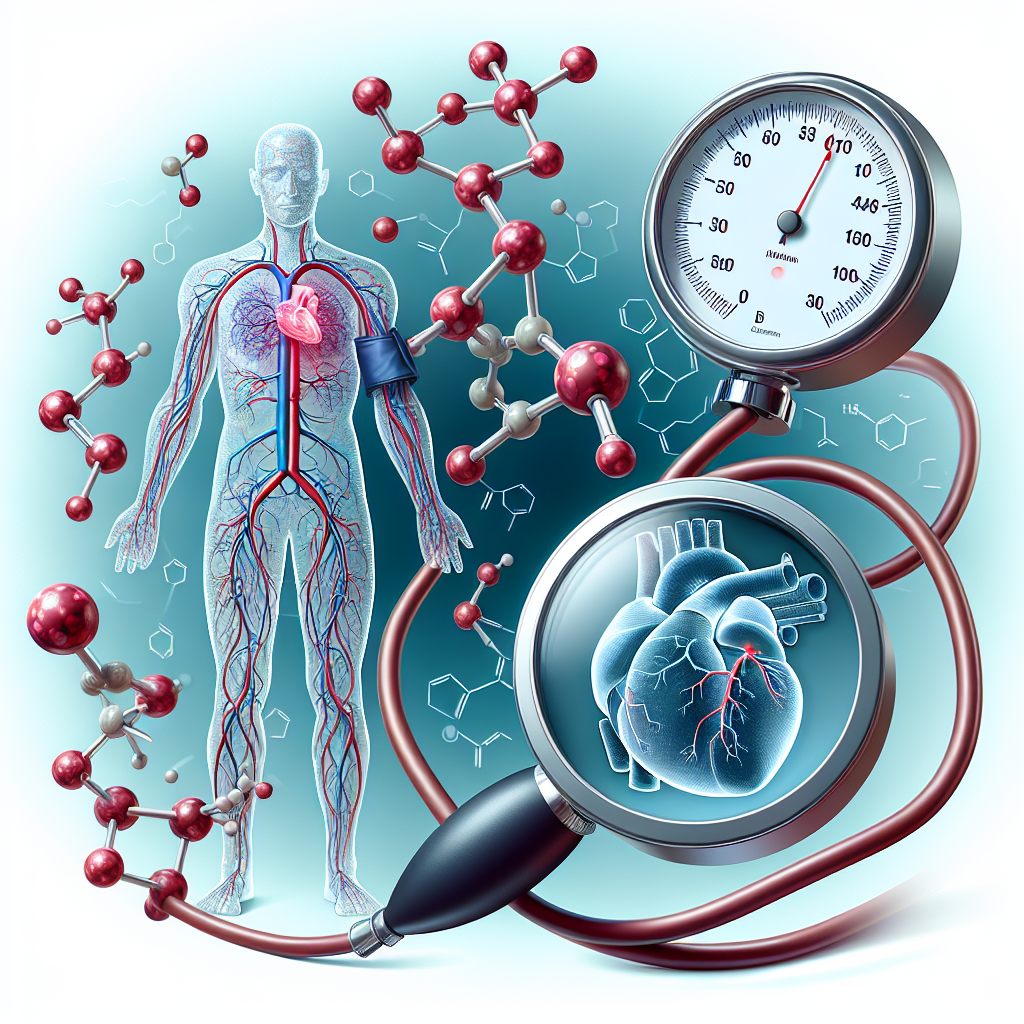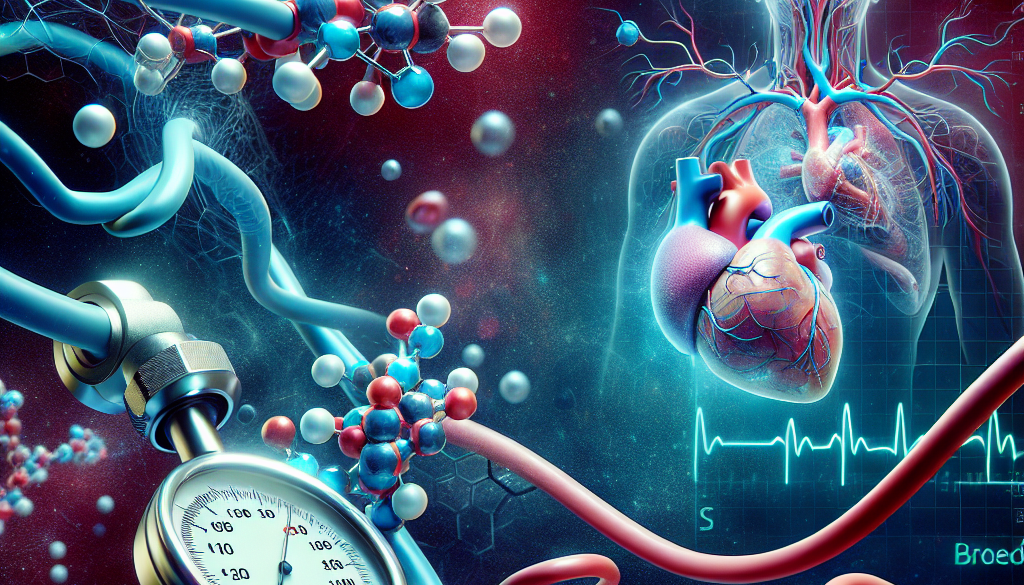Does PQQ Lower Blood Pressure?
-
Table of Contents
- PQQ and Blood Pressure: Unveiling the Connection
- Understanding PQQ: A Brief Overview
- The Link Between PQQ and Blood Pressure
- Scientific Evidence: What Research Says
- Case Studies and Anecdotal Reports
- Understanding the Role of Antioxidants in Blood Pressure Management
- Recommended Dosage and Safety Considerations
- Conclusion: Weighing the Potential of PQQ for Blood Pressure
- Discover ETChem’s Protein Products
PQQ and Blood Pressure: Unveiling the Connection

High blood pressure, or hypertension, is a prevalent health concern that affects millions of people worldwide. It is a major risk factor for heart disease and stroke, leading to a quest for natural interventions that can help manage this condition. One such potential intervention is Pyrroloquinoline quinone (PQQ), a compound that has garnered attention for its potential health benefits. This article delves into the research surrounding PQQ and its effects on blood pressure, providing insights into whether this compound could be a valuable addition to hypertension management strategies.
Understanding PQQ: A Brief Overview
Pyrroloquinoline quinone (PQQ) is a small quinone molecule that has been identified as a novel vitamin-like compound. It is found in various foods such as kiwifruit, green peppers, parsley, and human breast milk. PQQ has been studied for its role in cellular growth, development, and protection against oxidative stress. It is also known for its potential to enhance mitochondrial function, which is crucial for energy production and overall cellular health.
The Link Between PQQ and Blood Pressure
Recent studies have suggested that PQQ may have a positive impact on blood pressure levels. The proposed mechanisms include its antioxidant properties, which can combat oxidative stress—a known contributor to hypertension. Additionally, PQQ’s ability to improve mitochondrial efficiency could play a role in better cardiovascular health and, by extension, blood pressure regulation.
Scientific Evidence: What Research Says
Several animal studies and limited human clinical trials have explored the relationship between PQQ supplementation and blood pressure. For instance, research on hypertensive rats has shown that PQQ can help lower systolic blood pressure. However, it is important to note that human studies are less conclusive and more research is needed to establish a direct cause-and-effect relationship.
Case Studies and Anecdotal Reports
While peer-reviewed research is paramount, anecdotal evidence from individuals who have incorporated PQQ into their diets also provides valuable insights. Some users report improvements in their blood pressure readings after starting PQQ supplementation. These reports, while not scientific proof, suggest that PQQ may be beneficial for some individuals in managing their blood pressure.
Understanding the Role of Antioxidants in Blood Pressure Management
Antioxidants are known to play a significant role in cardiovascular health. They help neutralize free radicals, which can damage blood vessels and contribute to hypertension. PQQ’s potent antioxidant capacity means it could be a useful tool in the fight against high blood pressure.
- Reduction of Oxidative Stress: PQQ’s ability to reduce oxidative stress is well-documented, which may indirectly support healthier blood pressure levels.
- Enhancement of Nitric Oxide Production: PQQ may also enhance the production of nitric oxide, a molecule that helps relax blood vessels and lower blood pressure.
Recommended Dosage and Safety Considerations
When considering PQQ supplementation, it’s essential to understand the recommended dosages and potential safety concerns. Most studies have used dosages ranging from 10 to 20 mg per day, which are generally considered safe. However, as with any supplement, it is crucial to consult with a healthcare provider before starting PQQ, especially for individuals with existing health conditions or those taking medication.
Conclusion: Weighing the Potential of PQQ for Blood Pressure
In conclusion, while there is promising evidence that PQQ may help lower blood pressure, more extensive human studies are required to confirm its efficacy. The compound’s antioxidant properties and mitochondrial benefits suggest it could be a valuable addition to a heart-healthy lifestyle. However, it should not replace conventional blood pressure management strategies prescribed by healthcare professionals.
Discover ETChem’s Protein Products
If you’re looking to enhance your health regimen, consider exploring ETChem’s range of protein products. Their high-quality collagens, including marine, fish, bovine, and chicken collagens, offer various health benefits that can complement your dietary needs. Whether you’re interested in sports nutrition, weight management, or general wellness, ETChem provides tailored solutions to support your goals.
About ETChem:
ETChem, a reputable Chinese Collagen factory manufacturer and supplier, is renowned for producing, stocking, exporting, and delivering the highest quality collagens. They include marine collagen, fish collagen, bovine collagen, chicken collagen, type I collagen, type II collagen and type III collagen etc. Their offerings, characterized by a neutral taste, instant solubility attributes, cater to a diverse range of industries. They serve nutraceutical, pharmaceutical, cosmeceutical, veterinary, as well as food and beverage finished product distributors, traders, and manufacturers across Europe, USA, Canada, Australia, Thailand, Japan, Korea, Brazil, and Chile, among others.
ETChem specialization includes exporting and delivering tailor-made collagen powder and finished collagen nutritional supplements. Their extensive product range covers sectors like Food and Beverage, Sports Nutrition, Weight Management, Dietary Supplements, Health and Wellness Products, ensuring comprehensive solutions to meet all your protein needs.
As a trusted company by leading global food and beverage brands and Fortune 500 companies, ETChem reinforces China’s reputation in the global arena. For more information or to sample their products, please contact them and email karen(at)et-chem.com today.




